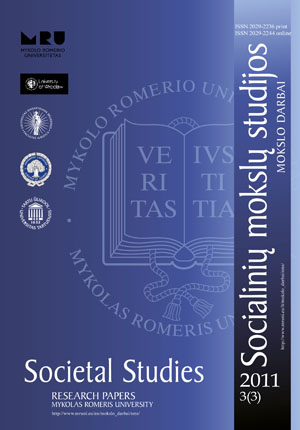Atlikėjų turtinių teisių individualaus įgyvendinimo problemos Lietuvoje
Problems of Individual Exercise of Performers’ Economic Rights in Lithuania
Author(s): Nijolė Janina Matulevičienė, Ramūnas BirštonasSubject(s): Social Sciences
Published by: Mykolas Romeris University
Keywords: individual exercise of performers’ economic rights; transfer of performers’ exclusive rights; performers’ right; related rights; author’s rights
Summary/Abstract: Practical issues of the individual exercise of performers’ economic rights in Lithuania are analysed in the article. The analysis is divided in two parts: the first part deals with the peculiarities of the transfer of performers’ exclusive economic rights under civil contracts and focuses on performers’ rights exercise under employment contract and analyses problems related to the legal presumption of performers’ rights’ transfer to the employer. Analysis of the factual relations between performers and their contractors in Lithuania has shown that in most cases performers’ economic rights are transferred under copyright agreement. Even though the legal rules on the transfer of performers’ rights should protect performers as weaker party of agreement against theirs contractors, performers in most cases conclude contracts with vague, unclear, uncertain clauses. Usually the agreements do not differentiate the remuneration for the performance service and the transfer of economic rights. These factors allow making a conclusion that the individual exercise of performers’ economic rights despite the existing protective legal regulation is not effective and does not ensure equitable economic benefit for the performers. Research has also shown that performers’ right to remuneration should be provided by law not only in the case of broadcasting and communication to the public but also in the case of performances making available to the public. The legal analysis of performer status in employment relations allows making two main conclusions. Firstly, although the employment relation should ensure the most effective protection of performers social and economic interests, the existing legal regulation of employment relationship lacks of flexibility and does not reflect the real needs of performers as well as their contractors. As a result the possibility to create specific rules applicable for performers’ and theirs contractors’ relations that would be more flexible and would allow for the performers to use certain employees’ rights (right to minimum wage, right to be a member of trade union and participate in collective bargaining) should be considered in Lithuania. Secondly, disposition of Law on Copyright in Lithuania providing the legal presumption of transfer of performer-employee economic right to the employer should be abolished as ineffective and incoherent with protective dispositions on performers’ rights in Law on Copyright.
Journal: Socialinių mokslų studijos
- Issue Year: 3/2011
- Issue No: 3
- Page Range: 945-965
- Page Count: 21
- Language: Lithuanian

